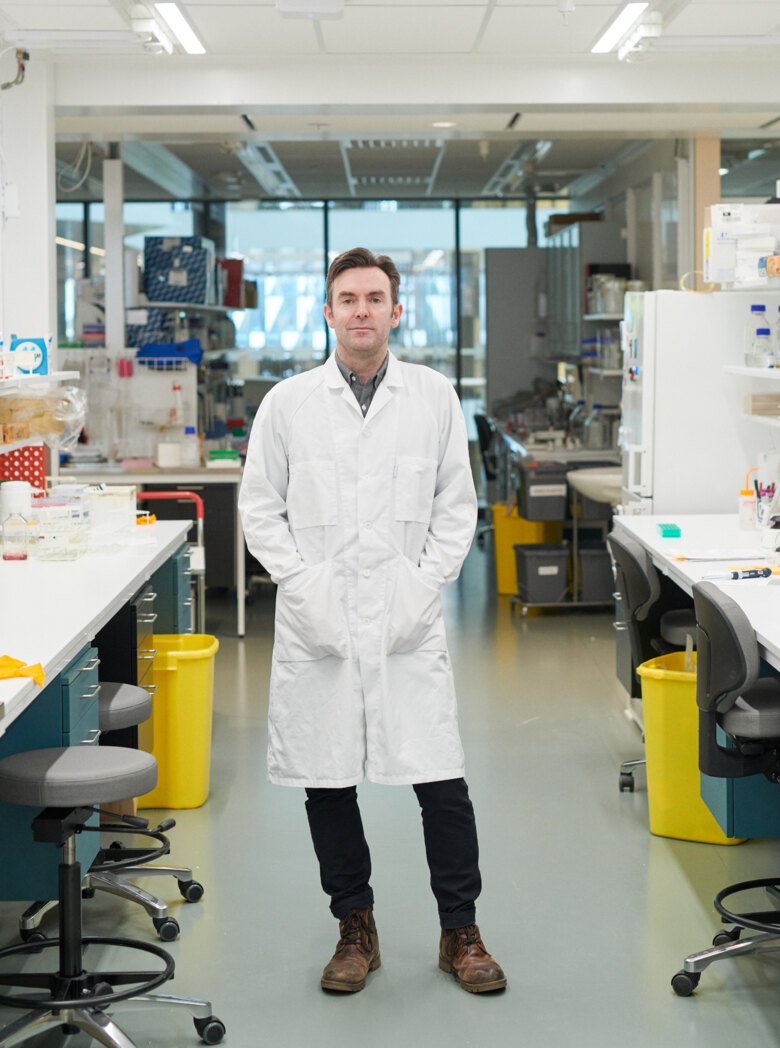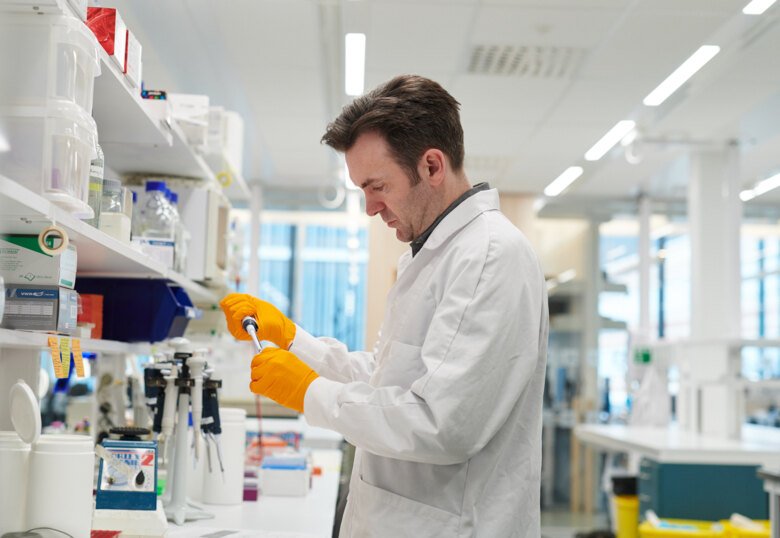The hunt for antibodies against the coronavirus
The coronavirus pandemic has shaken all our lives—and researchers around the world are working hard to find solutions to the crisis. Gerald McInerney, Associate Professor of Virology at Karolinska Institutet, focuses on developing antibodies that can block the virus’ ability to infect cells, so-called neutralizing antibodies.

Text: Anna Molin, first published at ki.se in April 2020. A shorter version is published in Swedish in the magazine Medicinsk Vetenskap No 2/2020.
Tell us about your coronavirus research.
“We realized early on that SARS-CoV-2, that is the virus causing covid-19, risked becoming a serious pandemic. We also knew that it would take a long time to develop a vaccine, and that we therefore needed drugs that could slow the progression of the disease, ease symptoms and reduce fatalities. So, when Chinese researchers published the virus’ genetic code in January, my colleague, postdoc Leo Hanke, and I immediately went to the lab to clone the spike protein that functions as a sort of key for the virus to enter our cells. In February, we injected this spike protein—not the coronavirus but only the protein—into an alpaca (a member of the camel family) in Germany. We are now waiting to see if our alpaca develops antibodies against this protein.”
When will you know?
"Toward the end of April, we plan to take blood samples from the alpaca to check if its B-cells (a type of white blood cell) have developed antibodies against the spike protein. Our hope is that these so-called neutralizing antibodies will block the spike protein, and thereby the coronavirus, from entering our cells and from replicating further. If we succeed, we will publish the results on a website that is open for everyone, most likely after the summer, so that pharmaceutical companies could use the results to develop antiviral drugs for those who are ill or for risks groups. These drugs could provide passive immunization, that is a short-term protection against covid-19, until we have a vaccine that could offer long-term immunity."
What's the likelihood that you will succeed?

"I feel very hopeful and think we have a good chance. We know quite a lot about the coronavirus in general and have seen that similar strategies have led to an antibody response against other coronaviruses such as SARS and MERS. We are many researchers globally working on this, so someone will surely succeed. If someone beats us to it, we will adjust our strategy and focus on developing even better antibodies or antibodies that work on different strains of the virus. Since this is a virus that mutates quite easily, we could end up needing several different types of antibodies so that we are better prepared if new variants of the coronavirus pop up in the future."
What’s it like to work as a virologist in the middle of a pandemic?
"I’m glad there are many researchers working on this—it would have been a lot more pressure if we were the only ones. As a virologist I have very mixed feelings. I have been fascinated with viruses since I was a schoolboy and now, I get to be active and contribute in this crucial moment. These few months will be remembered for a long time in the future, so in a way it is a very interesting time. But at the same time, people are dying, and I’m worried for my family members and myself. When I come in to work, the building is almost empty because a lot of people are staying home, and the streets are deserted. It feels like a Sunday in July because no one is around in Stockholm. It’s a heavy, and a bit scary, feeling.”
